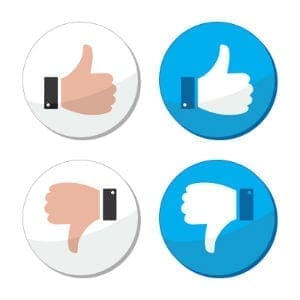 “Truth is a very powerful thing,” says Tom Valentine, chief executive of Secret Escapes in response to the question: what do you think has helped you to compete in what some would argue is already a very overcrowded market?
“Truth is a very powerful thing,” says Tom Valentine, chief executive of Secret Escapes in response to the question: what do you think has helped you to compete in what some would argue is already a very overcrowded market?
Since launching in 2011, this members only club for handpicked luxury travel offers has signed up 10 million people and sold over a million room nights. Already a market leader in the super competitive UK, as well as Germany and the Nordics, this year the group is now ready to take on the US and Asia, along with some country launches in Europe.
“We don’t see why we wouldn’t grow to a business selling over £1 billion of holidays a year,” says Valentine.
That may sound ambitious, so does the firm’s quest to deliver the truth really stack up?
To start with, for the past few years they have stuck ruthlessly to the theme of handpicked luxury and worked hard to build awareness on both the demand and supply side of the business.
A major focus has been working on how to get the ‘truth’ out in all the right channels and “wrap it up in an interesting narrative,” says Valentine.
On the demand side the truth is quite simple: handpicked luxury, accurately described and beautifully illustrated at prices that are heavily discounted against other sites. According to Valentine, those discounts are on average between 30 and 40% but can be as much as 70%. If a customer finds a better deal anywhere, Secret Escapes promises to renegotiate with the property or drop it altogether.
On the supply side, the firm has a team of 50 actively talking to hotels that fit the bill. What hotels benefit from is having their property put in front of an audience that is purchasing discretionary travel.
“Nine out of ten people who book with us weren’t planning a trip and would not have booked a room if they hadn’t seen our email, so there is very little cannibalisation of the OTA trade,” says Valentine.
Hotels are apparently seeing bookings as incremental, so the upside is that they get people walking through the door who would otherwise not have done so. Bearing in mind that many of these hotels will have spas, restaurants and so on attached, there is plenty of opportunity to upsell ancillary products, and build customer loyalty with the guest during their stay.
On this front there is scope to improve: EyeforTravel’s recent report Ancillary Revenues in the Hospitality Industry report finds that 60% of revenue managers say that ancillaries contribute just 10% to revenues but it could rise to a maximum of 25%.
According to Valentine, customer data also shows that the guest is starting to build Secret Escapes into their annual travel plans. In other words, they acknowledge that by keeping an eye on the site, they may be in line for one or two unexpected, luxury trips during the course of the year.
Social, mobile, email and the power of the image
Valentine cannot stress enough the importance of great looking content and the incredible power of imagery. To this end, the firm has a dedicated team that helps hotels to format images to match the site style.
“Fundamentally, however, an hotel’s photographs or videos tend to reflect the truth of the property, so sometimes we don’t approve a deal based on imagery,” says Valentine.
However, if this piece slots into the content puzzle, then everything else seems to fall into place too.
Having mobile-optimised experience and a social strategy that is intricately woven into its online presence and strategic to the business is also hugely important. The majority of the group’s 10 million users interact via mobile and it has recently surpassed a million fans on Facebook – a hugely important channel for customer acquisition.
“New people find us on Facebook and then they engage with us and our member hotels on Facebook,” Valentine says.
It seems this is an approach that works.
“The most successful travel brands on Facebook are the ones that are leveraging it as marketing channel populated by real people, with real interests,” says Facebook Travel Lead Dorianne Richelle, “and measuring success using business metrics and marketing objectives, rather than just social metrics such as the number of likes.”
Crucially, a successful strategy on Facebook has to combine great organic content with putting marketing spend against the platform. This ‘both, and’ strategy is something that Facebook advocates and Secret Escapes says it applies.
Another hugely important marketing tactic for Secret Escapes, which is also intricately tied to mobile, is email. Today 70% of visits to the group’s site come from mobile devices.
“So a common user flow is opening an email on their phone then visiting the site or opening our app,” says Valentine.
Email may not be the perfect technology, but with screens getting bigger and software improving all the time, email remains an “extremely powerful channel”.
To sum up then, success so far has come from having an integrated marketing campaign that includes:
- Putting marketing spend in all the right places including Google ad words, Facebook and most recently a move into TV, with a new ad campaign launching in April
- Beautiful, stylish, simple imagery
- Riding the mobile wave – a base of over 10 million members who primarily interact with via mobile
- A million fans on Facebook, an incredibly important channel for acquiring new customers and keeping them engaged with the brand and partner hotels
- Email – it’s anything but dead
Secret Escapes and Facebook will be speaking at the Travel Distribution Summit, Europe (May 6-7) and EyeforTravel @ Mobile World Congress (March 2)
What do you think about flash sales sites? Does Secret Escapes or others work for you? Tell us what you think in the comments box below.















